STOCKHOLM — On October 8, 2025, Turkish Airlines (TK) organized a “Connect to Türkiye” event in Stockholm and invited Airways to be a part of the event.
Gala Dinner at Stockholm City Hall
Aiming to introduce and celebrate the heritage and culture of Türkiye, TK gathered over 200 people at the Stockholm City Hall.
The event was held as a Gala Dinner, accompanied by Turkey’s live music, an exhibition introducing Türkyie’s culture, and a Kahoot quiz where everyone had a chance to win a Business Class round trip ticket to one of Türkyie’s cities.
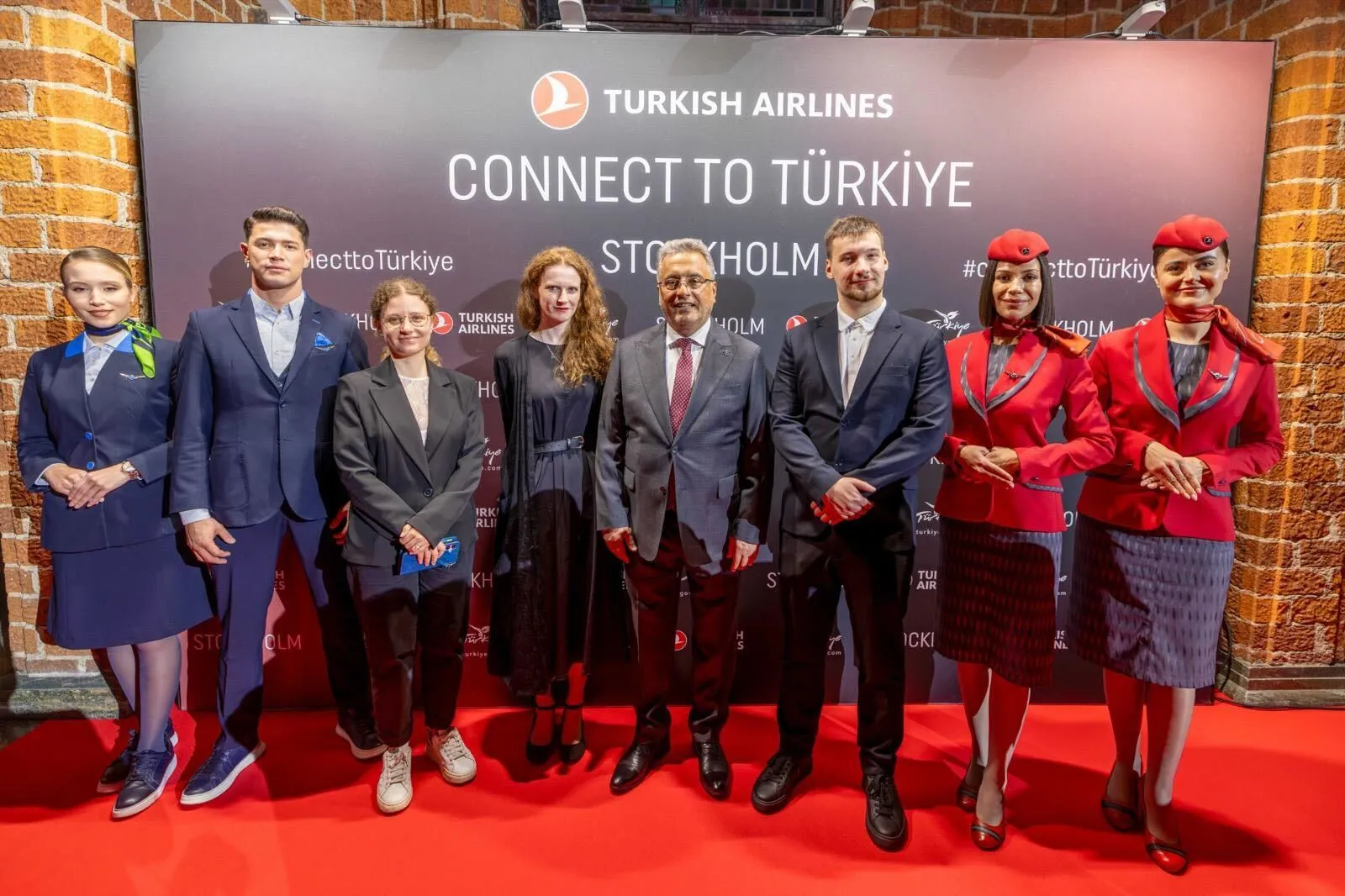
Interviews with Turkish Airlines Senior Executives
For the Press representatives, including myself, a roundtable discussion was held with Chairman Prof. Ahmet Bolat and CFO Assoc. Prof. Murat Şeker, CCO, Mr. Ahmet Olmuştur, and other senior executives of TK were in attendance. During the roundtable, we had the opportunity to learn about Turkish Airlines' history and plans, as well as ask questions.
Three main topics at the roundtable were minority stake acquisition in Air Europa, expansion plans for the year 2033, and Turkish Airlines’ role in developing Türkyie’s aerospace sector.
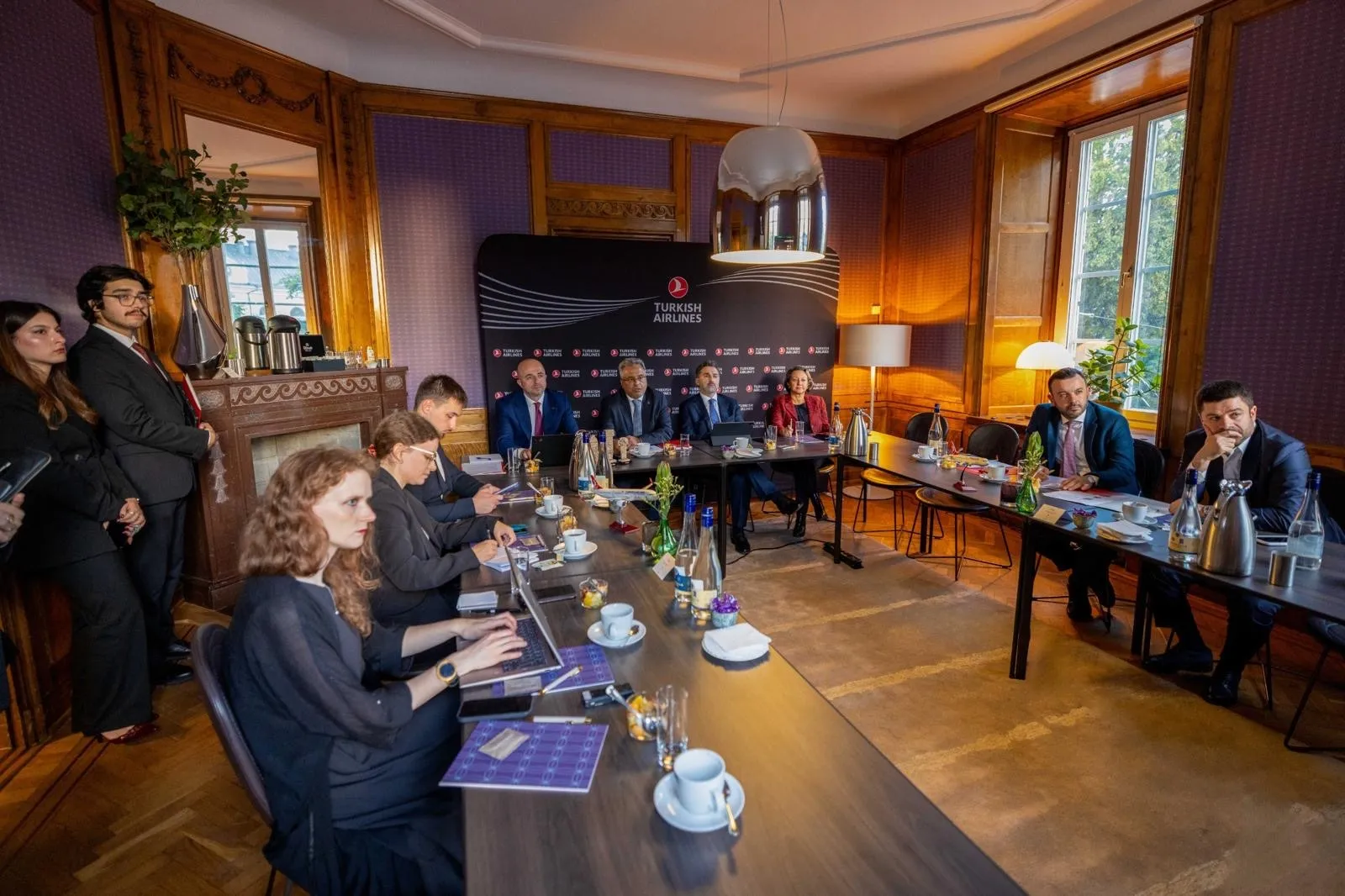
Investment in Air Europa
Cooperation framework
Chairman Prof. Ahmet Bolat explained that the primary aim of this investment is for both Turkish Airlines and Air Europa to benefit from each other's networks, thereby offering passengers smooth and seamless connectivity.
Chairman Prof. Ahmet Bolat acknowledged that owning a minority stake has not always been straightforward; however, he assured that this cooperation is not about controlling or changing Air Europa, but about complementing their existing business model and its growth path with Turkish Airlines’ rich expertise.
Prof. Ahmet Bolat stated that Turkish Airlines highly respects Air Europa's existing strategy and will avoid unnecessary disruptions, developing synergy through cooperation rather than control, to deliver long-term value for both companies and the markets served by Turkish Airlines.
As the first step, cooperation will focus on network expansion. As the framework extends further, synergy in areas such as MRO, Cargo, Loyalty Programme, and digital platforms will be achieved.
Regulatory Operational Challenges
Turkish is aware of regulatory and operational challenges arising with cross-border investments. Airline representatives were confident of TK's ability to comply with the European regulatory environment, as it has been doing for a long time.
Air Europa’s current restructuring presents an opportunity to invest in strengthening its balance sheet and reducing risk exposure, leveraging Turkish Airlines' expertise in scaling airlines, maintaining profitability, and crisis management.
The Turkish Airlines Chairman stated that the key to mitigating existing risks and challenges lies in geographical, operational, and financial diversification.
Similar Cooperations in the Future?
Over 20 years, Turkish Airlines’ growth has tripled the industry average. To sustain its growth trajectory, the airline is open to high-impact, long-lasting partnerships that will accelerate TK’s 2033 Strategy.
Each partnership must be complementary and create long-term value for TK's ecosystem.
At the IATA Annual General Meeting in Delhi, Turkish Airlines signed a Joint Business Agreement with Thai Airways on the Istanbul - Bangkok route to expand the passenger traffic potential between Türkiye and Thailand.
Turkish Technic and Rolls-Royce are working on the establishment of a regional maintenance hub at Istanbul Airport, aiming to handle up to 200 engines annually, further strengthening Turkish Technic’s position as a regional MRO leader.
In the future, TK will stay open to minority stake acquisitions, joint ventures, technical partnerships, and co-investments in aviation technology, MRO, and sustainability projects.
.webp)
Expansion Strategy 2033
Growing Fleet to 800 Aircraft
Prof. Ahmet Bolat said that Turkish Airlines will be ready to operate a fleet of 800 aircraft by y030; however, existing delays in manufacturing and supply chain disruptions are pushing the timeline further into 2033.
There are multiple contingencies in TK’s fleet roadmap - direct purchases and leasing to maintain flexibility, dialogues with manufacturers to adapt to delivery delays, and periodic reviews to optimize fleet strategy based on market demand, fuel prices, and global economic shifts.
Retiring Older Generation Aircraft
Retirement of older aircraft will follow a dynamic model rather than a fixed timeline. The main goal is to maintain efficiency and balance passengers' comfort with sustainability goals.
Retirements will be aligned with the delivery of new aircraft, market conditions, and operational performance. Aircraft with lower efficiency and higher operations costs will be prioritized for retirement to ensure that the airline's fleet remains competitive, environmental impact is minimized, and flexibility is maximized.
Turkish Airlines’ fleet consists of 38% new-generation aircraft. The percentage is estimated to rise above 90% by 2033 and reach 100% in 2035.
Expanding Connectivity
As fleet growth increases, so does the network. Turkish Airlines already flies to more countries than any other airline and is aiming to deepen this connectivity further.
Asia-Pacific is expected to be the fastest-growing region. The U.S. will remain the center of TK’s strategy, with 14 gateway cities and further expansion in the future.
Latin America presents a significant growth opportunity, made possible through our partnership with Air Europa. TK will also look to expand in Africa, where it already leads as the non-regional airline with the most extensive network.
At the same time, the airline is aiming to increase capacity on existing routes, especially in Europe, the U.S., and China, to benefit from growing demand.
Increased capacity will be achieved not only by increased flight frequencies but also by switching narrow-body aircraft to wide-bodies on selected routes to maintain optimal network performance.
Mitigating Regulatory Risks and Supply Chain Disruptions
While Turkish Airlines’ fleet strategy is ambitious, it is also adaptive, aiming to sustain long-term growth and ensure operational resilience.
Turkish Airlines is mitigating risks by diversifying supplier relationships, maintaining strong ties with both Airbus and Boeing, and engaging closely with engine manufacturers such as Rolls-Royce, GE, and CFM. Participation in international regulatory discussions ensures compliance with evolving emissions, noise, and sustainability standards.
Thanks to several subsidiaries, especially Turkish Technic, the airline has strong resilience to changing maintenance standards as well as the ability to mitigate supply chain challenges.
.webp)
Turkish Airlines’ Role in the Development of Türkyie’s Aerospace Industry
Cornerstone of Tütkiye’s aerospace industry
Turkish Airlines is the flagship of Türkiye’s aviation ecosystem with 19 subsidiaries and over 100,000 employees (to be 150,000 by 2033).
Turkish Airlines is actively investing in and supporting the local aviation sector, particularly in the area of SAF production. Turkish Airlines’ economic contribution to Turkey in the first half of 2025 has been $16 billion.
The airline’s role is to act as both a global connector and a catalyst for Türkiye’s industrial growth. Each aircraft purchase, new partnership, and investment is set to benefit not only Turkish Airlines but Türkiye’s aerospace industry as a whole.
In 2025, TK initiated a program to increase local production by local Turkish suppliers across the airline's ecosystem to reduce dependency and boost exports.
MRO Services, Component Manufacturing
Turkish Technic is one of the world’s leading MRO providers. The recent partnership with Rolls-Royce, aiming to establish a licensed engine maintenance center in Istanbul, capable of servicing up to 200 engines annually, will further elevate Türkiye’s role as a global hub for advanced aviation services and support Türkiye’s high-tech export goals.
Through affiliates such as TCI Aircraft Interiors and Turkish Technology, Turkish Airlines is directly contributing to global aerospace supply chains.
Engineering and design
Turkish Airlines has launched programs with Airbus and Boeing to integrate Turkish suppliers into manufacturers’ global footprint. These programmes aim to ensure the Turkish local industry benefits from advanced technology transfer and long-lasting partnerships.
Turkish Airlines: Growing Even Stronger in 2025
Turkish Airlines is continuing to grow in 2025 with a record 150% capacity compared to 2019 (Europe average 110%, the World’s average 105%).
Airline’s capacity market share is highest in Europe, with 3.4%, and its cargo market share is showing an impressive 6%, marking Turkish Airlines as the 3rd highest cargo market share worldwide.
Airlines have demonstrated a strong, above the EU’s average, 84.2% on-time departure performance, gaining nearly 5% since 2024.
Continuing to invest in cabin improvement allowed Turkish Airlines to reach a strong NPS of 48. In 2025, TK is expected to carry over 91 million passengers and up to 2.1 million tonnes of cargo.
“Connect to Türkiye”
In 2025, TK hosted similar events in Osaka, Ege, and Seville, attracting over 800 guests in total. With more events planned this year, Turkish Airlines continues to showcase Turkey’s culture worldwide.

.webp)
.webp)
.webp)
.webp)
.webp)
.webp)
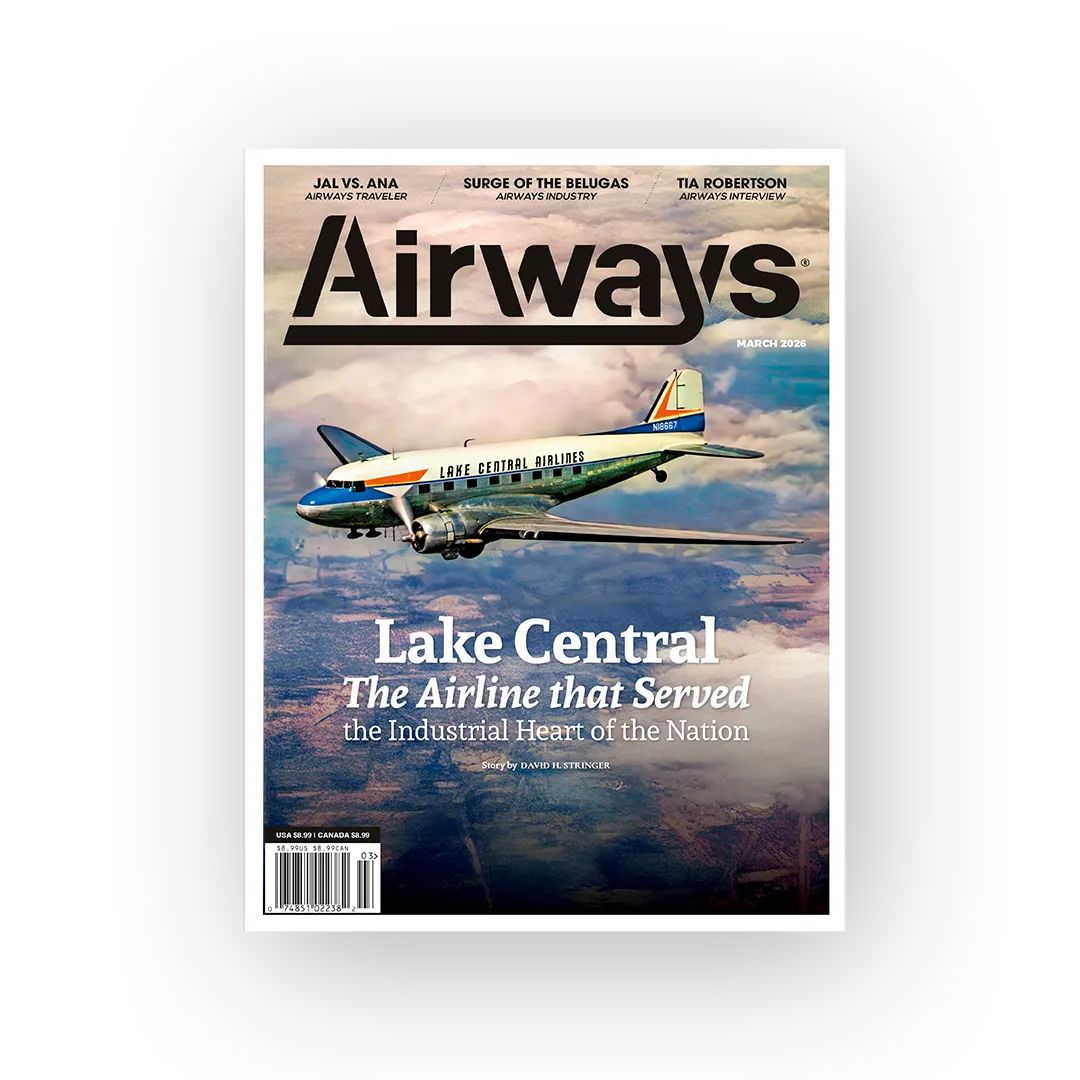

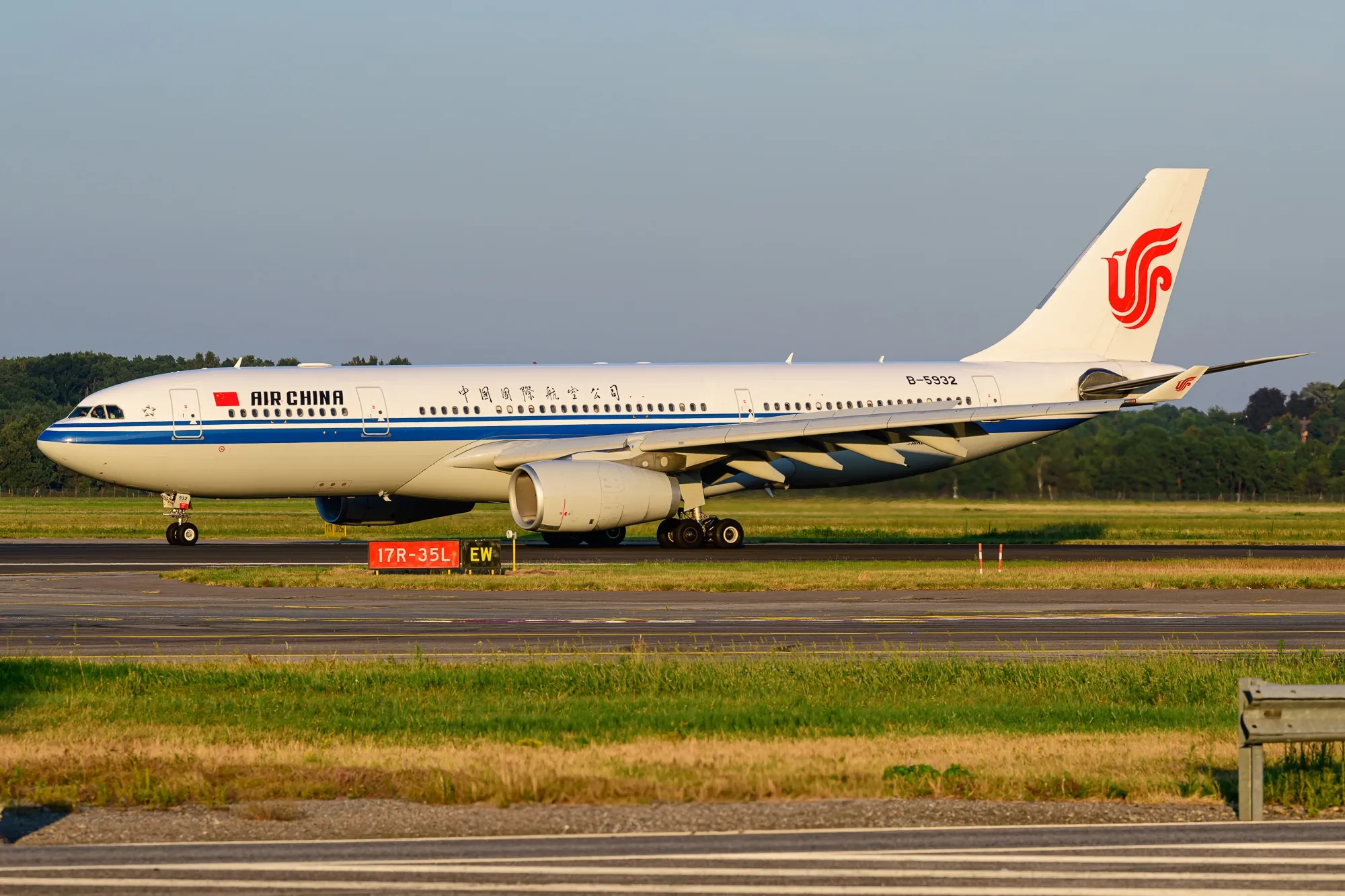
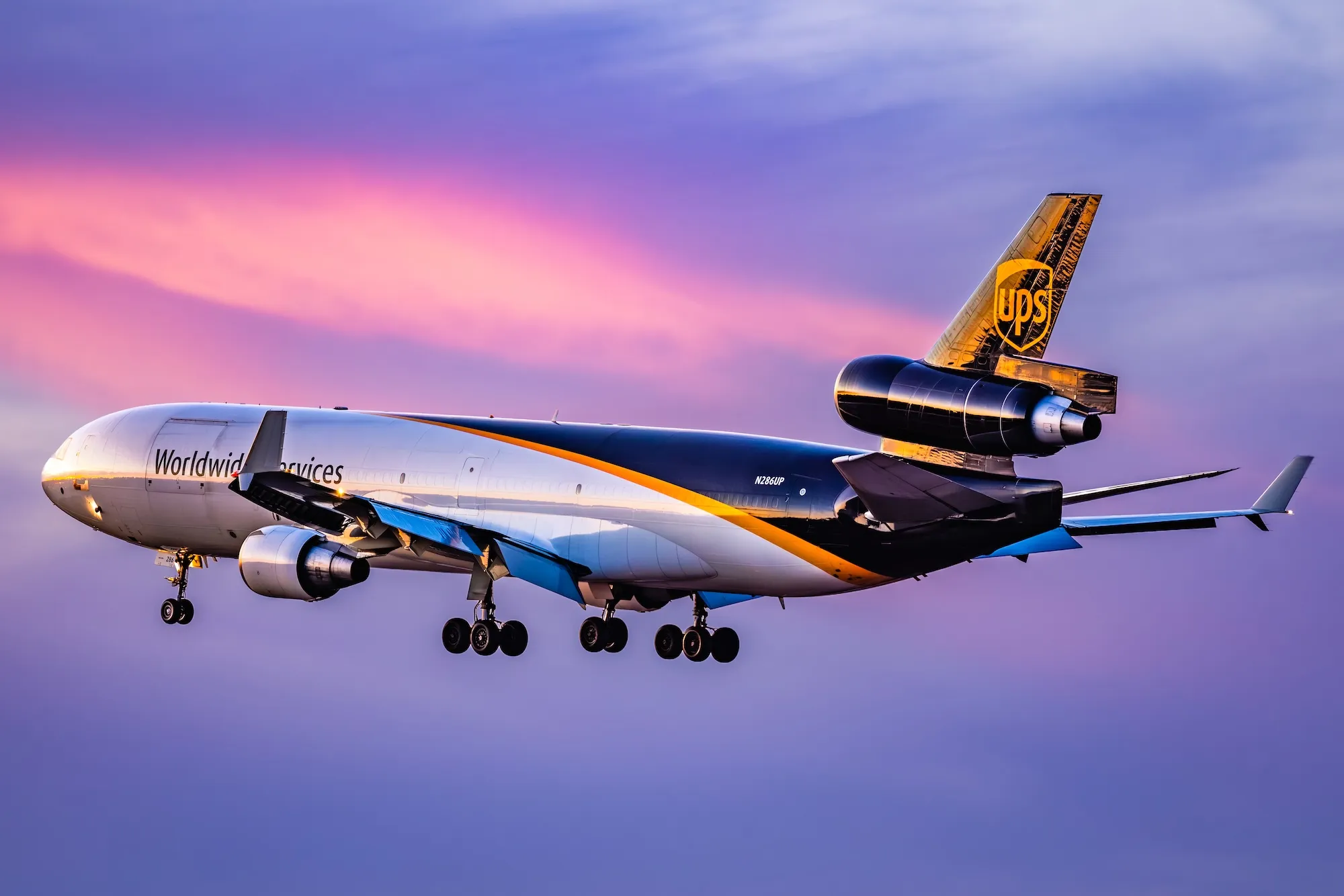
.webp)